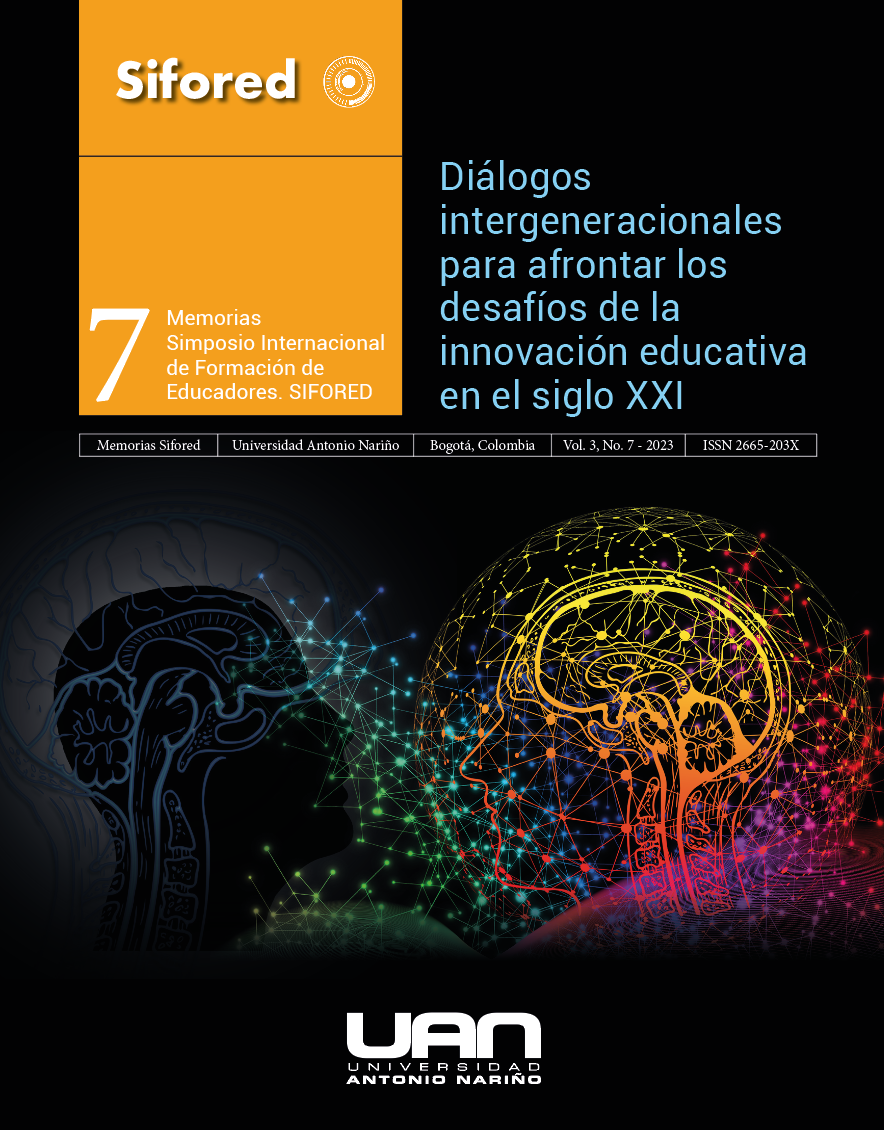Aplicaciones del marco DigCompEdu en la formación de docentes de secundaria. Una revisión sistemática de la literatura
Keywords:
Teacher education, secondary education, technological education, educational research, systematic reviewAbstract
The design of curricular proposals for training in digital teacher competencies requires constant updating from global references that comprehensively address the aforementioned competencies. This systematic literature review aims to identify the influence of the DigCompEdu framework in the design of training proposals and diagnostic evaluation of the digital competencies of secondary school teachers between 2017 and October 2022. The parameters of the PRISMA methodology were followed based on a database product of the SCOPUS analysis of completed articles published in English, Portuguese and Spanish. The final sample (n=29) was analyzed in depth with Atlas.ti. It was identified that the DigCompEdu framework of the European Commission is the main reference in this type of training, face-to-face or virtual. In addition, it is highlighted that Spain and Portugal lead the design and application of ad hoc or previously validated diagnostic research based on this framework, and that the trend is to develop teaching competence comprehensively with the six areas of DigCompEdu with permanent communication channels, present not only during training.
Downloads
References
Cabero-Almenara, J., Romero-Tena, R., & Palacios-Rodríguez, A. (2020). Evaluation of teacher digital competence frameworks through expert judgment: The use of the expert competence coefficient. Journal of New Approaches in Educational Research, 9(2), 275–283. https://doi.org/10.7821/naer.2020.7.578
Cantabrana, J. L. L., Rodríguez, M. U., & Cervera, M. G. (2019). Assessing teacher digital competence: The construction of an instrument for measuring the knowledge of pre-service teachers. Journal of New Approaches in Educational Research, 8(1), 73–78. https://doi.org/10.7821/naer.2019.1.370
Çebi, A., Bahçekapılı Özdemir, T., Reisoğlu, İ., & Çolak, C. (2022). From digital competences to technology integration: Re-formation of pre-service teachers’ knowledge and understanding. International Journal of Educational Research, 113. https://doi.org/10.1016/j.ijer.2022.101965
Choe, Y., Lee, J., & Lee, G. (2022). Exploring Values via the Innovative Application of Social Media with Parks Amid COVID-19: A Qualitative Content Analysis of Text and Images Using ATLAS.ti. Sustainability (Switzerland), 14(20). https://doi.org/10.3390/su142013026
Dias-Trindade, S., & Ferreira, A. G. (2020). Digital teaching skills: Digcompedu checkin as an evolution process from literacy to digital fluency. Icono14, 18(2), 162–187. https://doi.org/10.7195/RI14.V18I2.1519
Gallego-Arrufat, M.-J., Torres-Hernández, N., & Pessoa, T. (2019). Competence of future teachers in the digital security area. Comunicar, 27(61), 53–62. https://doi.org/10.3916/C61-2019-05
Gordillo, A., Barra, E., Garaizar, P., & López-Pernas, S. (2021). Use of a Simulated Social Network as an Educational Tool to Enhance Teacher Digital Competence. Revista Iberoamericana de Tecnologías Del Aprendizaje, 16(1), 107–114. https://doi.org/10.1109/RITA.2021.3052686
Lucas, M., Dorotea, N., & Piedade, J. (2021a). Developing Teachers’ Digital Competence: Results from a Pilot in Portugal. Revista Iberoamericana de Tecnologías Del Aprendizaje, 16(1), 84–92. https://doi.org/10.1109/RITA.2021.3052654 Lucas, M., Bem-Haja, P., Siddiq, F., Moreira, A., & Redecker, C. (2021b). The relation between in-service teachers' digital competence and personal and contextual factors: What matters most? Computers and Education, 160 https://doi:10.1016/j.compedu.2020.104052
Marta-Lazo, C., Frau-Meigs, D., & Osuna-Acedo, S. (2019). A collaborative digital pedagogy experience in the tMOOC “Step by Step.” Australasian Journal of Educational Technology, 35(5), 111–127. https://doi.org/10.14742/ajet.4215 Martínez-Pérez, S., Cabero-Almenara, J., Barroso-Osuna, J., & Palacios-Rodríguez, A. (2022). T-MOOC for Initial Teacher Training in Digital Competences: Technology and Educational Innovation. Frontiers in Education, 7.
https://doi.org/10.3389/feduc.2022.846998
MEN [Ministerio de Educación Nacional de Colombia] (2013). Competencias TIC para el Desarrollo Profesional Docente. https://www.mineducacion.gov.co/1759/articles-339097_archivo_pdf_competencias_tic.pdf
Page, M. J., McKenzie, J. E., Bossuyt, P. M., Boutron, I., Hoffmann, T. C., Mulrow, C. D., Shamseer, L., Tetzlaff, J. M., Akl, E. A., Brennan, S. E., Whiting, P., & Moher, D. (2022). The PRISMA 2020 statement: an updated guideline for reporting systematic reviews. American Journal of Public Health, 46. https://doi.org/10.26633/RPSP.2022.112
Paré, G., Trudel, M.-C., Jaana, M., & Kitsiou, S. (2015). Synthesizing information systems knowledge: A typology of literature reviews. Information Management, 52(2), 183–199. https://doi.org/10.1016/J.IM.2014.08.008
Reisoğlu, İ., & Çebi, A. (2020). How can the digital competences of pre-service teachers be developed? Examining a case study through the lens of DigComp and DigCompEdu. Computers and Education, 156.
https://doi.org/10.1016/j.compedu.2020.103940
Rodríguez, M. U., Cantabrana, J. L. L., & Cervera, M. G. (2021). Validation of a tool for self-evaluating teacher digital competence. Educación XX1, 24(1), 353–373. https://doi.org/10.5944/educXX1.27080
Rodríguez, N. C., Lorenzo-Rial, M.-A., & Rodríguez, U. P. (2022). Digital competence of teachers in terms of content creation: self-perception of teachers in educational scientific training in Galicia (Spain). Educação e Pesquisa, 48. https://doi.org/10.1590/S1678-4634202248243510
Romero-García, C., Buzón-García, O., & de Paz-Lugo, P. (2020b). Improving future teachers’ digital competence using active methodologies. Sustainability (Switzerland), 12(18). https://doi.org/10.3390/SU12187798
Cattaneo, A. A. P., Antonietti, C., & Rauseo, M. (2022). How digitalised are vocational teachers? Assessing digital competence in vocational education and looking at its underlying factors. Computers and Education, 176.
Downloads
Published
-
Abstract365
-
PDF (Español)104
How to Cite
Issue
Section
License

This work is licensed under a Creative Commons Attribution-NonCommercial-ShareAlike 4.0 International License.


 Portal de Ciencia Abierta
Portal de Ciencia Abierta